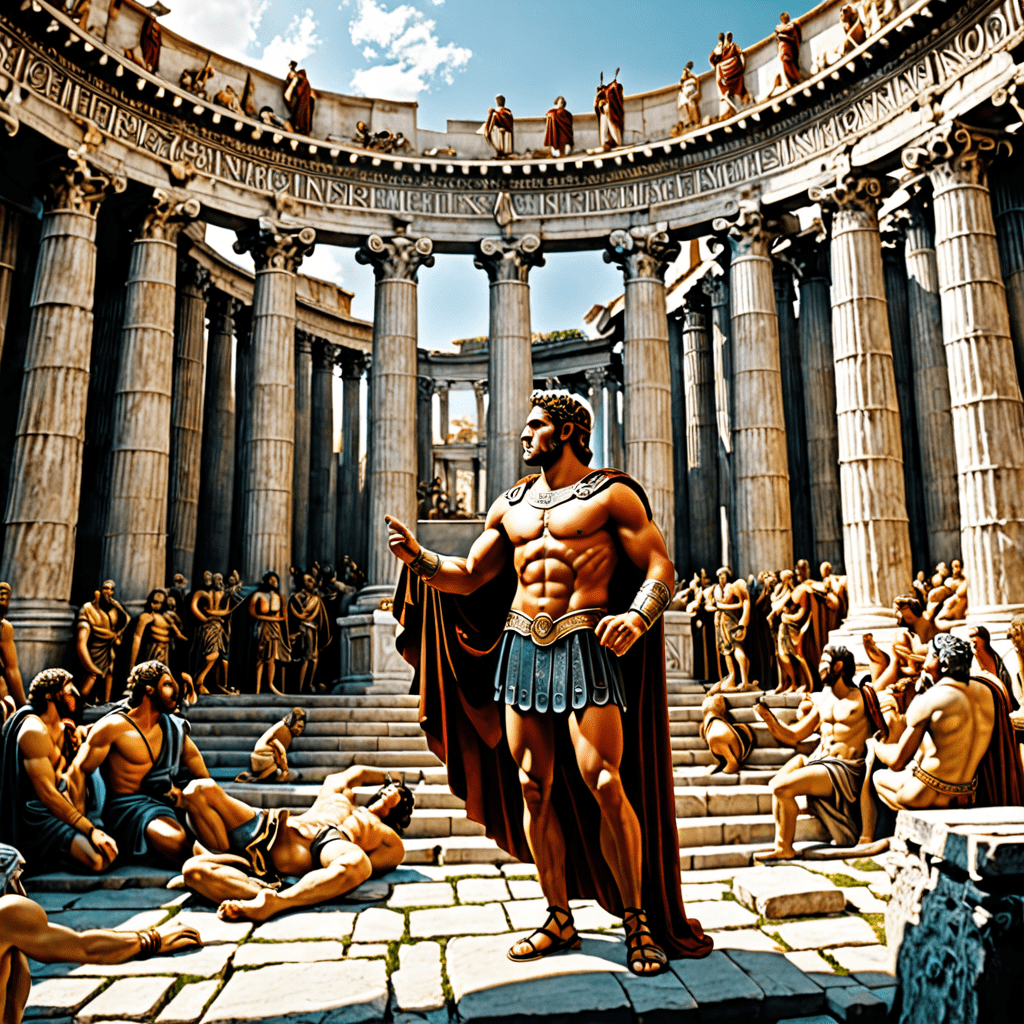End of Days: Myths That Have Shaped Human History
1. Introduction to End of Days Myths
The concept of the “End of Days” is woven into the fabric of human history, encapsulating a wide range of apocalyptic myths and beliefs that have influenced cultures across the globe. These myths, often steeped in religious, philosophical, and existential significance, explore themes of destruction, renewal, and the ultimate fate of humanity. In this article, we will delve into the origins of apocalyptic thought, examine religious perspectives, and analyze the cultural impacts of these enduring beliefs.
2. The Origins of Apocalyptic Thought
The roots of apocalyptic thought can be traced back to ancient civilizations, where the end of the world was often seen as a cyclical event rather than a linear conclusion. Early texts, such as those from Mesopotamian and Egyptian cultures, provide insight into how these civilizations understood and interpreted their world.
- Mesopotamian Texts: Myths like the Epic of Gilgamesh included themes of destruction and rebirth.
- Egyptian Beliefs: The concept of the Duat, or the afterlife, reflected ideas about cosmic order and chaos.
3. Religious Perspectives on the End of Days
Religious interpretations of the End of Days vary widely, each offering unique insights into humanity’s fate and the divine’s role in it.
Christian Eschatology
In Christianity, the Book of Revelation describes a series of events leading to the Second Coming of Christ, where good triumphs over evil. Key themes include:
- The Rapture
- The Tribulation
- The Final Judgment
Islamic Views
Islam teaches of Yawm al-Qiyamah, or the Day of Judgment, a time when all individuals will be resurrected and judged by Allah. Key components include:
- The blowing of the trumpet
- The resurrection of the dead
- Divine judgment based on one’s deeds
Hindu and Buddhist Concepts
In Hinduism and Buddhism, the idea of cyclical time plays a crucial role. Both religions view time as a series of cycles, with the end of one age leading to the renewal of the cosmos. Important aspects include:
- Hindu Yugas: The cycle of ages leading to the end of the current age.
- Buddhist concepts of impermanence and rebirth.
4. Cultural and Societal Impacts of End of Days Myths
Apocalyptic myths have profoundly influenced social behavior, fostering community cohesion and sometimes inciting panic or social upheaval. The Millerites, for example, were a 19th-century group that anticipated the Second Coming in 1844, leading to the Great Disappointment when their predictions failed.
5. Myths of the Apocalypse in Popular Culture
End of Days narratives have permeated literature, film, and art, shaping cultural perceptions of apocalypse. Notable works include:
- The Road by Cormac McCarthy: A haunting tale of survival in a post-apocalyptic world.
- Mad Max: A series highlighting a dystopian future ravaged by war and resource scarcity.
- The Stand by Stephen King: A narrative about a pandemic that leads to societal collapse.
6. Scientific Perspectives on Apocalypse: Reality vs. Myth
While apocalyptic myths often stem from religious or cultural beliefs, science provides a different lens through which to understand potential existential threats. Key concerns include:
- Climate Change: A pressing issue that poses significant risks to civilization.
- Asteroid Impacts: The potential for catastrophic events as a result of celestial bodies colliding with Earth.
Scientists often work to debunk unfounded apocalyptic fears, attempting to ground them in reality while also acknowledging legitimate risks.
7. Political and Economic Consequences of End of Days Beliefs
Apocalyptic myths can shape political movements, influencing policies and societal structures. Historical and contemporary examples reveal their impact:
- Political movements that capitalize on fears of impending doom.
- Economic systems that prepare for crises based on apocalyptic beliefs.
8. Modern-Day Apocalyptic Movements
Contemporary cults and groups often espouse apocalyptic ideologies, utilizing technology and the internet to spread their messages. These movements reflect a blend of traditional beliefs and modern anxieties about the future.
9. Psychological Dimensions of Apocalypse Myths
Humans are drawn to apocalyptic narratives for various reasons, including:
- The allure of dramatic change.
- The psychological comfort of understanding chaos through a narrative.
- Existential anxiety and the search for meaning.
10. Conclusion: The Future of End of Days Myths
The myths surrounding the End of Days continue to persist in modern society, evolving with new interpretations as humanity faces unprecedented challenges. As we navigate an ever-changing world, these narratives will likely adapt, reflecting our deepest fears and hopes for the future.



